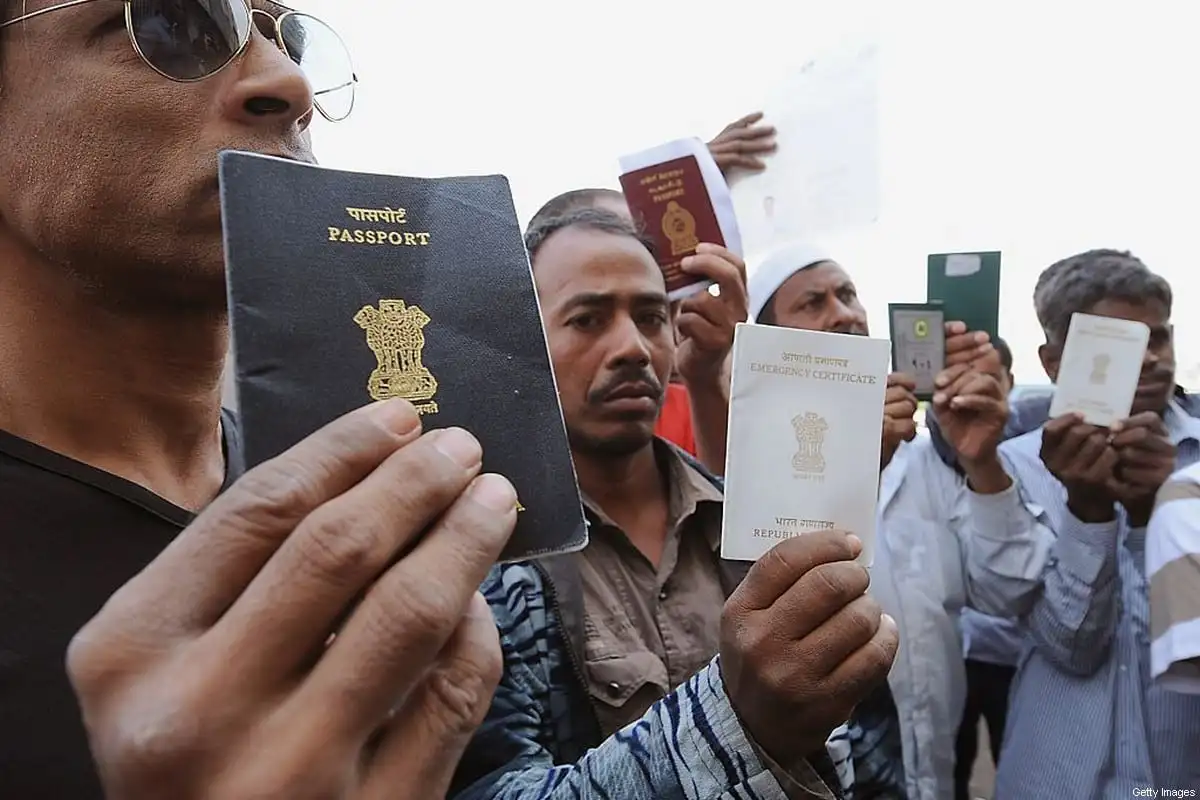For decades, migrant workers who moved to Saudi Arabia have faced hardships in seeing their rights fulfilled by a fair labor law set by the kingdom. Although some efforts have been made to ensure a more humanized approach to their rights, the abusive system in which the country operates still does not ensure that basic rights are being observed.
Migrant workers constitute 80 percent of the private sector workforce in Saudi Arabia, being employed in the sectors of manual labor, clerical functions and service industry. Last year, the Global Slavery Index has estimated that out of these, a total of 740,000 people residing in Saudi Arabia are vulnerable to modern slavery. Even though these numbers are high, the efforts put in place by the Saudi government to limit human trafficking have been noted by the international community.
One of the measures put in place to abolish human trafficking was the ban on passport withholding by the employer. The regulation reads that the employer shall not have the right to retain workers’ passport, iqama, or medical insurance card without a written statement This reform was announced in December 2020 by the Saudi Ministry of Human Resources. If the employer does not comply with the regulation, a fine of 5000 riyals, (1,230 EUR) should be imposed.
The government deployed 400 labor inspectors and officials of the Human Rights Commission specialized in human trafficking to conduct investigations on violations of the new regulation. 33,869 violations were flagged, although it was not made public how many of these referred to passport withholding.
Whilst accusations of passport retention were still being made by NGOS and observers, the Saudi government passed an amendment lowering the value of the fine for this crime to 1000 Riyals (246,19 EUR) even though these constituted a ‘’serious violation.’’
Diana Chepkemoi, a Kenyan citizen recruited in 2022 to work in Saudi Arabia, was a victim of passport confiscation, resulting in her being immobilized with an abusive employer who did not provide salaries for the first three months, denied health care and nutrition, and subjected her to physical and psychological abuse. This case gained traction online which led to the Kenyan government to aid her repatriation. The Saudi Embassy in Kenya denied the claims of abuse stating that her health condition was ‘’normal’’.
Efforts to combat passport withholding have not thus far materialized real effect. With reduced fines, low transparency, and little intervention from migrant sending countries, a system that allows for abuse and human slavery is still in place, meaning that many people residing in the country cannot rely on the legal framework to see their rights being upheld.

